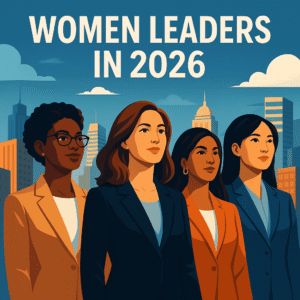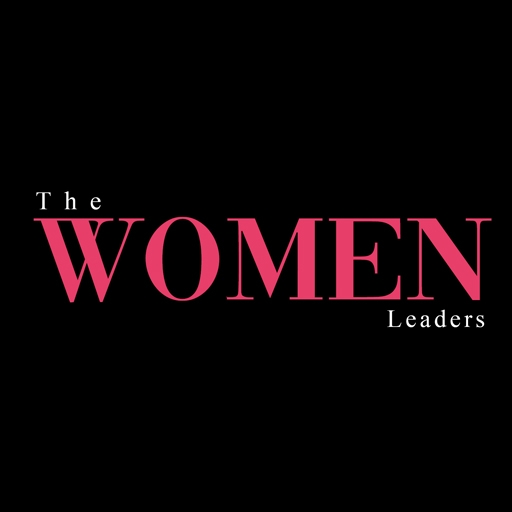
Women Leaders in 2026 – A Powerful & Transformative Global Shift
Explore how Women Leaders in 2026 are transforming business, politics, and global innovation. Discover trends, challenges, and FAQs in this in-depth guide.

Isobel Rogers
Director, Customer Experience Foundation(www.cxfo.org)
Today there are more women than ever before working in the CX and contact centre industry driving digital transformation and CX innovation.
Historically and in the present day, women have played a significant role in technology and innovation and customer service. However, we found that many women continue to face barriers to entry and advancement in these fields, including discrimination, biases, and lack of representation.
Unique Perspectives of Women Leading CX and Digital Disruption
One of the central questions addressed during the event was about the unique perspectives women bring to leadership roles in the CX and Contact Centre industry.
Participants emphasised that women often exhibit a more nurturing and empathetic approach, which significantly impacts their leadership style.
Nurturing Leadership
Women leaders often prioritise team development and nurture the growth of their team members. The belief that a leader is only as good as their team resonated throughout the discussions. In one-on-one interactions, leaders encouraged team members to reflect on their successes and failures, fostering an environment of continuous improvement.
Celebrating Wins
Another showcase of women’s leadership styles was their desire for celebrating successes. Whether in CX or Contact Centres, where challenges are constant, taking time to acknowledge achievements and reflect on their impact was deemed essential.
Empathy
Female leaders frequently embrace empathy and mentorship as core principles. They recognise the importance of empathising with their team members and offering mentorship to help them overcome challenges. Becoming mentors themselves was seen as a way to pay it forward and support the development of future leaders in the industry.
Mentorship Matters
Many women highlighted the huge significance of mentors in their journey. These mentors played an important role in helping them navigate the industry’s challenges, including imposter syndrome and the tendency to focus on weaknesses rather than strengths. Mentoring was perceived as a powerful mechanism for self-discovery and personal growth.
This was also true in a recent young leaders focus group and a LinkedIn poll which was launched in advance of the focus group where 68% of respondents said that they did not have a mentor in place, and those who did have one expressed the importance of their mentor in their career journeys. One member of the panel stated that it isn’t about ‘fake it till you make it’, but rather ‘fake it till you become it”.
Psychological Safety
Creating psychologically safe environments where team members feel comfortable speaking up and contributing was recognised as a key driver of inclusivity, particularly with female leaders. Tools, such as AI algorithms that detect changes in employee behaviour, were mentioned as ways to identify potential issues and provide support when needed. Evolving Perceptions In many cases, these leaders were tasked with changing industry perceptions. Their experiences from various sectors allowed them to bring fresh perspectives to the industry. Rather than shattering stereotypes outright, they gradually shifted people’s perceptions of what was possible within the CX and Contact Centre industry.
Gender equality at work or rather inequality
According to the Chartered Institute of Personnel and Development (CIPD), the gender pay gap among full-time employees in April 2022 was 8.3%. Among all employees, the gender pay gap decreased to 14.9%, from 15.1% in 2021, and is below the levels seen in 2019 (17.4%).
The reasons for the gap are complex and interrelated, including economic, cultural, societal and educational factors:
A lack of flexible working options
Women being the main providers of unpaid caring responsibilities
Occupational segregation
The undervaluing of women’s work
Pay discrimination
The gender pay gap among full-time employees in April 2022 was 8.3%. Among all employees, the gender pay gap decreased to 14.9%, from 15.1% in 2021, and is below the levels seen in 2019 (17.4%).
The reasons for the gap are complex and interrelated, including economic, cultural, societal and educational factors. If not addressed, this gap not only disadvantages individuals, but means employers miss out on a wealth of talent as they risk their reputation as a fair and inclusive employer.
Gender pay gap reporting has brought transparency to workplace gender equality issues that need addressing, but it’s the action that follows that makes the real difference.
Conclusion
The conversations highlighted not only the challenges faced by women in the industry but also the resilience and creativity with which they have overcome these hurdles. From challenging stereotypes and embracing authenticity to fostering inclusivity and advocating for diversity, female leaders in the CX and Contact Centre industry are paving the way for a more equitable and inclusive future.
The industry has made significant progress, but there is still work to be done to ensure equal opportunities and representation for women in leadership roles. This serves as a testament to the progress made and as a call to action for continued efforts to empower and support women in their journey to leadership roles within the CX and Contact Centre industry. By sharing these insights, we hope to inspire future generations of women to seize the opportunities within this dynamic and ever evolving field.
A replay of the CXFO Breaking Barriers Women in Leadership webinar can be found here and a copy of the report is free to download here
BIO:
Isobel Rogers – Director at The Customer Experience Foundation (www.cxfo.org)
Isobel has over 30 years in the customer experience and digital transformation arena working with some of the industry’s leading digital tech companies and contact centre outsourcers.
Starting out as a contact centre agent and gaining experience in operational and client engagement roles, Isobel joined industry body, CXFO, in 2021.
Passionate about transforming and enhancing customer service, Isobel is also a huge advocate for encouraging more women to achieve their potential and inspire women in the workplace to realise their hopes, dreams and aspirations.
Isobel has set up the women in leadership industry council at CXFO to showcase the great work women are doing in the CX and digital transformation industry.


Explore how Women Leaders in 2026 are transforming business, politics, and global innovation. Discover trends, challenges, and FAQs in this in-depth guide.

The growth of networks, visibility and influence of women leaders is reshaping business, capital and policy. See what’s driving it—and what should come next.

Why Europe’s Toughest Decisions Are Now in Women’s Hands
When Europe faced one of its most defining years in recent memory

The data is no longer just anecdotal—it’s becoming undeniable. Women-led companies outperform expectations, and investors, always hunting for alpha, have noticed.


Subscribe
Fill the form our team will contact you
Advertise with us
Fill the form our team will contact you
Leave us a message